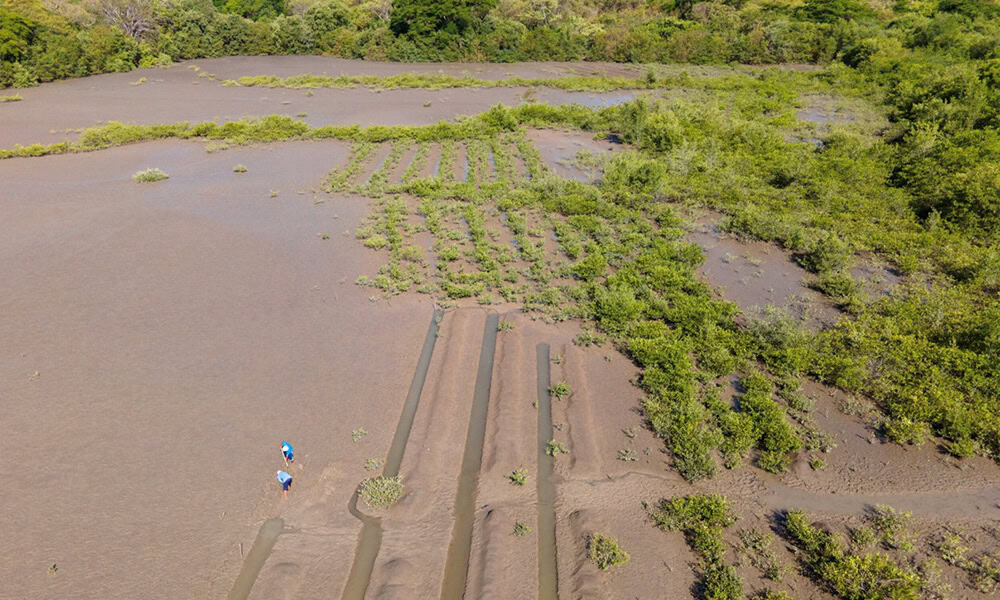Costa Rica and France have announced a significant partnership to advance blue carbon conservation, timed strategically ahead of their co-hosting of the United Nations Oceans Summit in Nice, France. The French Development Agency (AFD) is providing substantial funding for the initiative, collaborating with Conservation International Costa Rica to safeguard coastal ecosystems, including mangroves, seagrasses, and salt marshes, which play a critical role in capturing carbon and mitigating climate change.
Blue carbon ecosystems store carbon in their sediments and biomass, reducing atmospheric greenhouse gases. Costa Rica manages 52,802 hectares of mangroves, of which 14,336 hectares are identified as key carbon reservoirs. These ecosystems also protect coastlines from erosion and storms while supporting communities reliant on fishing and tourism.
The initiative, spearheaded by Conservation International Costa Rica, involves close coordination with Costa Rica’s Ministry of Environment and Energy (MINAE) and the National System of Conservation Areas (SINAC). The AFD’s financial support will fund community-based projects, such as mangrove restoration and sustainable livelihood programs for coastal residents. A steering committee, comprising representatives from MINAE, SINAC, and potentially the National Commission for Biodiversity Management (CONAGEBIO), will oversee implementation, with the AFD serving as a permanent observer to maintain strategic oversight and transparency.
Jean-Philippe Berthélemy, AFD Director in Costa Rica, stated, “This collaboration advances Costa Rica’s commitment to science-driven, inclusive sustainable development. Our partnership with France underscores a shared dedication to preserving marine ecosystems.” The project aligns with Costa Rica’s National Blue Carbon Strategy, initiated in 2023, which focuses on managing and restoring these ecosystems to benefit both the environment and local economies.
The timing of the initiative is notable, as Costa Rica has long been a global leader in conservation, protecting over 25% of its land and aiming for carbon neutrality by 2050. Its 2020 climate plan emphasized marine ecosystems as a cornerstone of climate mitigation. France, strengthening its role in global ocean conservation, will leverage the UN Oceans Summit to advocate for enhanced international cooperation.
The partnership also explores innovative financing models, such as extending Costa Rica’s payment for ecosystem services program to marine habitats. This approach could provide financial incentives for communities protecting mangroves and seagrasses, fostering economic and environmental resilience.
Mangroves lead in carbon storage, though seagrasses and salt marshes also contribute significantly. The initiative will prioritize restoring degraded areas to maximize carbon sequestration.
As the UN Oceans Summit approaches, this collaboration positions Costa Rica and France to demonstrate leadership in ocean conservation. Further details on fund allocation are expected, potentially including community training, mangrove replanting, and research into blue carbon’s climate benefits. The initiative signals a strong commitment to protecting coastal ecosystems for a sustainable future.






